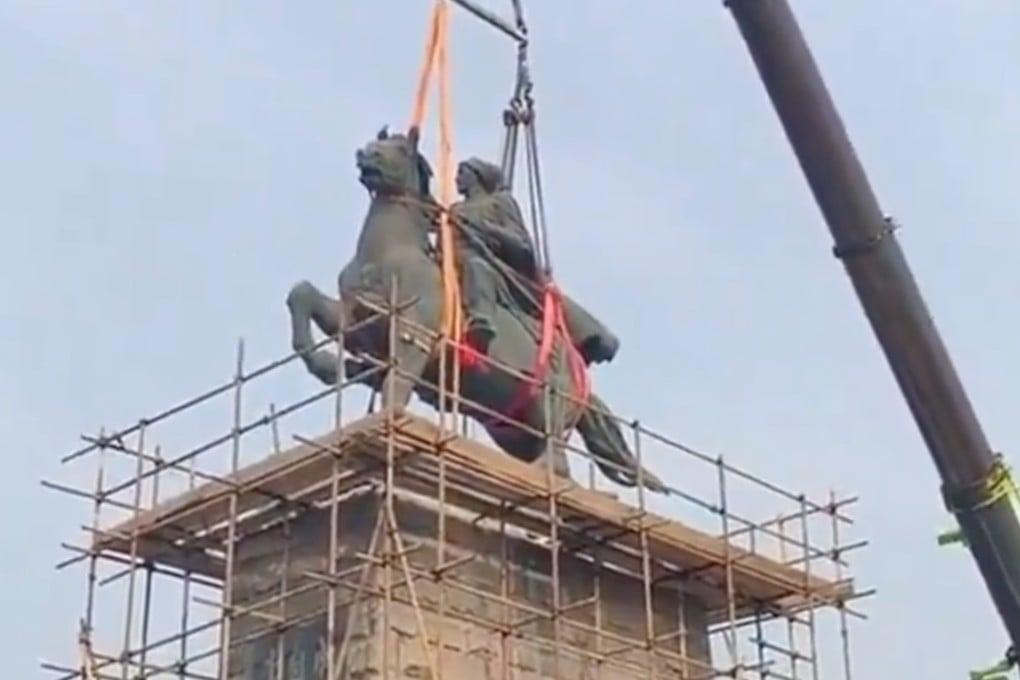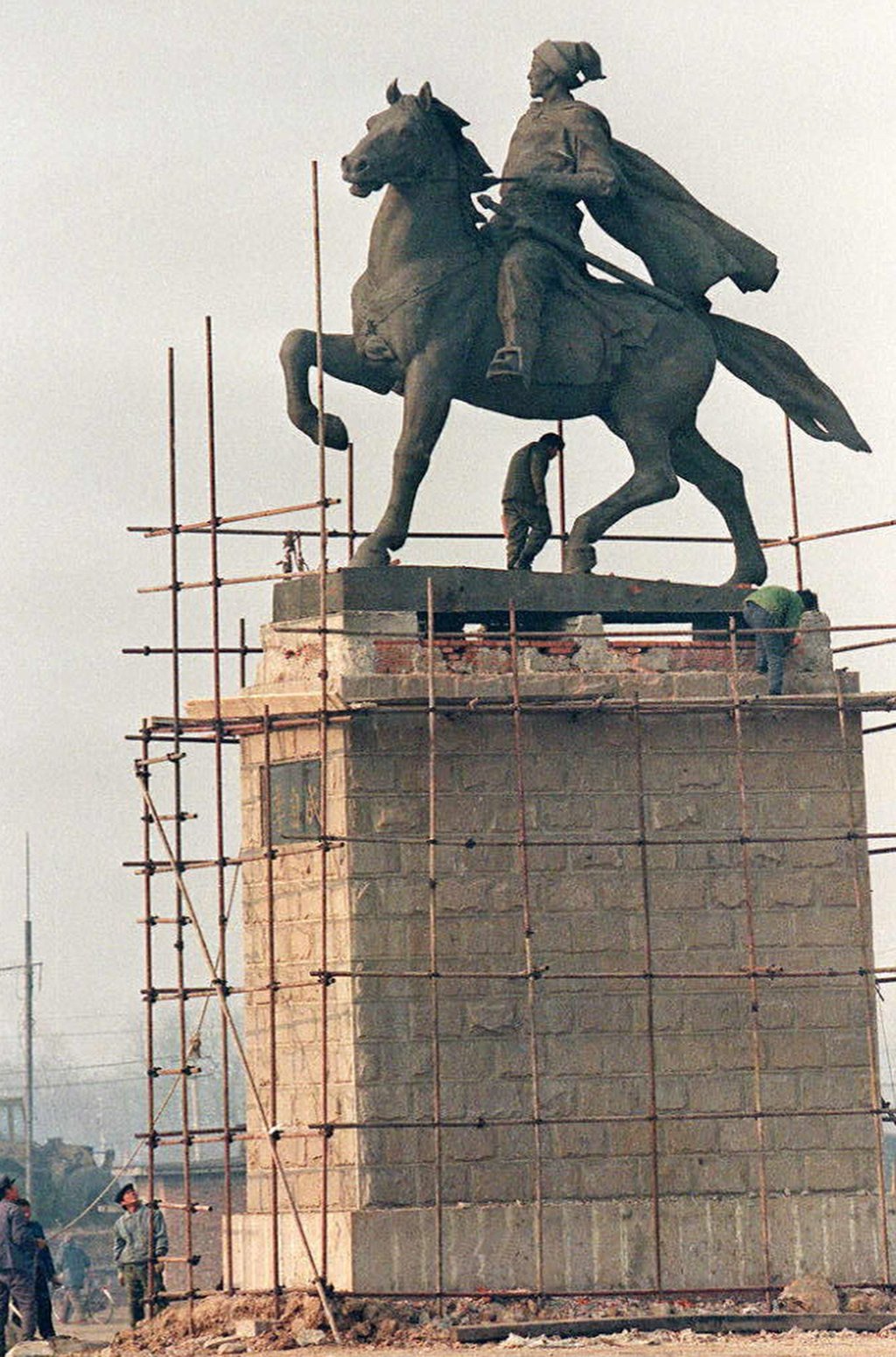Opinion | Why the relocation of a peasant rebel leader’s statue in Beijing has stirred debate in China
- The landmark statue of Li Zicheng was quietly removed last week, with the official reason given as the need for road improvements
- In today’s era where social stability is an important goal, the actions of China’s peasant heroes are coming under scrutiny

Until a few days ago, a huge statue on the road from downtown Beijing to the Great Wall in Badaling could not be missed. It honoured Li Zicheng, the peasant revolt leader who broke into the Forbidden City on April 25, 1644, and forced the last Ming dynasty emperor to commit suicide.
Li’s bronze statue is considered a contemporary piece of art. Standing atop a tall granite stone foundation on a busy intersection, it was not hard to guess that Li must be an important historic figure for China.
But the landmark statue of Li, who is also known as Dashing King, was quietly removed last week, with the official reason given as the need for road improvements. It will be relocated hundreds of miles away at a tourist spot in the inland province of Shaanxi, where Li was born and started his revolt against the mighty Ming dynasty. While the relocation received little coverage from China’s official press, it stirred huge interest and debate on the Chinese internet over whether the country should treat rebels like Li as heroes.
For the People’s Republic, which was founded in 1949 after a Communist Party victory against the corrupt Kuomintang regime, rebel leaders like Li are traditionally enshrined as heroes. Chairman Mao Zedong was a well-known fan of Li. Mao had shown sympathy for Li and other rebels in Chinese history, even the fictional ones, as he echoed their heroic actions to rise up against injustice and repression. The spirit of revolting against a powerful yet decadent dynasty lives on through China’s revolutionary history. As Mao said, “where there is oppression, there is resistance”.
Mao tried to draw lessons from Li’s short-lived rule. On the eve of victory for Mao’s communist revolution, when his army was ready to enter Beijing, the chairman urged his comrades to avoid the same fate as Li, whose regime in Beijing lasted for only 42 days. Mao was so interested in Li that he even gave his personal blessing for the novelist Yao Xueyin to complete a masterpiece novel on the rebel leader. The novel later won the country’s most prestigious state-backed literature award, but for some critics, it went too far in glorifying Li.

Li is not the only peasant rebel leader to be endorsed in China. Mainland history textbooks pay tribute to peasant uprisings from the first large revolt led by Cheng Shen and Wu Guang in 209 BC to the Taiping Rebellion led by Hong Xiuquan in the mid-19th century. While most of these uprisings ended in bloodbath and destruction, and failed to change China’s social structure, the act of challenging injustice alone was enough to have them hailed as a “progressive force” in history.
